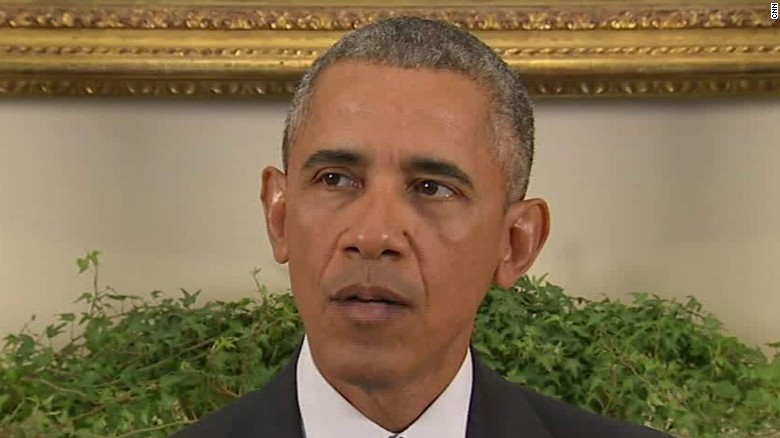Story highlights
- Peter Bergen: There are 8 good reasons for U.S. to maintain limited troop presence for the long term in Afghanistan.

By Peter Bergen, CNN National Security Analyst Updated 12:36 PM ET, Thu October 15, 2015

Obama: U.S. to delay troop withdrawal from Afghanistan 03:24
Story highlights
Peter Bergen is CNN's national security analyst, vice president at New America and a professor of practice at Arizona State University. He is the author of "Manhunt: The Ten-Year Search for bin Laden -- From 9/11 to Abbottabad."
(CNN)Congratulations to the Obama administration for making a reality-based decision on Afghanistan; the decision announced Thursday to keep some 10,000 troops there until the end of 2016 is exactly the right one. The Obama administration then plans to drop that number to 5,500 by early 2017 as it leaves office.

Peter Bergen
Earlier this year the administration had announced plans to draw down to a skeleton force of around 1,000 troops in Afghanistan by the end of its term. That decision would have tied the hands of the next president as it is much easier to maintain an existing troop presence -- both from a logistical point of view as well as politically -- than it is to ramp one up substantially. The decision to keep many thousands of troops in Afghanistan will help to enable the next president to make a longer-term decision about what to do going forward there. And that decision should be a no-brainer: Stay! Why so? Here are eight reasons. First, this is no exercise in American imperialism, as some have claimed. Rather, the Afghan government and people want the United States to remain engaged for the long haul.In a poll conducted earlier this year, two-thirds of Afghans favored a long-term role for U.S. and other international forces, while the Afghan government, led by President Ashraf Ghana and CEO Abdullah Abdullah, have been imploring U.S. officials to maintain a substantial troop presence. Indeed, eight out of 10 Afghans support the presence of U.S. forces in their country. Second, for those who have fantasized about the Taliban being just a bunch of misunderstood Pashtun backwoodsmen whose return to power in some shape or form would be no big deal, an examination of Amnesty International's recent report about what the Taliban did when late last month they took over the northern Afghan city of Kunduz is instructive. Amnesty writes: "Mass murder, gang rapes and house-to-house searches by Taliban death squads are just some of the harrowing civilian testimonies emerging from Kunduz. ...Women human rights defenders from Kunduz spoke of a 'hit list' being used by the Taliban to track down activists and others, and described how fighters had raped and killed numerous civilians." Third, an overwhelming 92% of Afghans prefer the current government to the Taliban, according to a poll taken earlier this year. In other words, not only is the United States on the right side of history in supporting the Afghan government against the Taliban, the Afghan people also overwhelmingly support this. Fourth, ISIS is establishing something of a foothold in areas of Afghanistan. ISIS has taken over portions of the eastern province of Nangarhar. ISIS executions there involve piling men alive into a mass grave and then using explosives to blow them up. ISIS fighters also torture their victims by thrusting their hands into boiling oil. ISIS' reign of terror even has ordinary Afghans pining for the Taliban!
Afghanistan: Why it matters for U.S. (Opinion)
Fifth, we have seen how the ISIS movie played out in Iraq in 2014 when the group seized major Iraqi cities such as Mosul enabled by the divisive Iraqi government; the incompetent Iraqi military forces and the absence of an American presence in the country. No one in his or her right mind would want to see anything remotely similar play out in Afghanistan. Sixth, Afghanistan is not Iraq. Afghanistan does have a somewhat functioning multiethnic government as well as widespread approval for its armed forces. An astonishing almost 90% of Afghans gave a thumbs-up to the Afghan army in a major nationwide poll by the Asia Foundation last year. In Iraq, by contrast, a poll also taken last year found only 40% of Iraqis who thought the Iraqi army was doing a good job of providing security.
Outrage over woman's burning shows changing Afghanistan
Seventh, a long-term U.S. troop presence in Afghanistan is not extending the war as some have claimed. Since the beginning of 2015, when the U.S. started winding down its combat role, five American soldiers have been killed by enemy fire, which is certainly five too many, but a far cry from what we seen in the past during the wars in both Iraq and Afghanistan. This makes clear that the current U.S. military role in Afghanistan more akin to a peacekeeping mission than to a shooting war. Eighth, the United States has seen that long-term American military presences overseas can pay off well. U.S. soldiers are still in South Korea in significant numbers -- more than a half-century since the end of the Korean War. That proved to be a wise choice as Korea went from one of the world's poorest countries to one of its richest during this period and is today a key U.S. trading partner. Insurgencies like the one mounted by the Taliban can go on for decades. Just look at the FARC insurgency in Colombia, which only now is ending with a peace deal after fighting that has gone on for a half-century. Instead of constantly announcing new U.S. drawdowns from Afghanistan as the Obama administration has done repeatedly over the past few years, which has the unintended consequence of sapping Afghans' confidence, Americans should get used to the fact that the U.S. commitment to Afghanistan should be for the long term and U.S. politicians should say so publicly. The fact is that a relatively small U.S. military presence will go a long way to stabilizing Afghanistan with a very low risk to the United States and a big upside -- which is ensuring Afghanistan doesn't revert in any shape or form to a failed state amenable to exploitation by either al Qaeda or ISIS.

